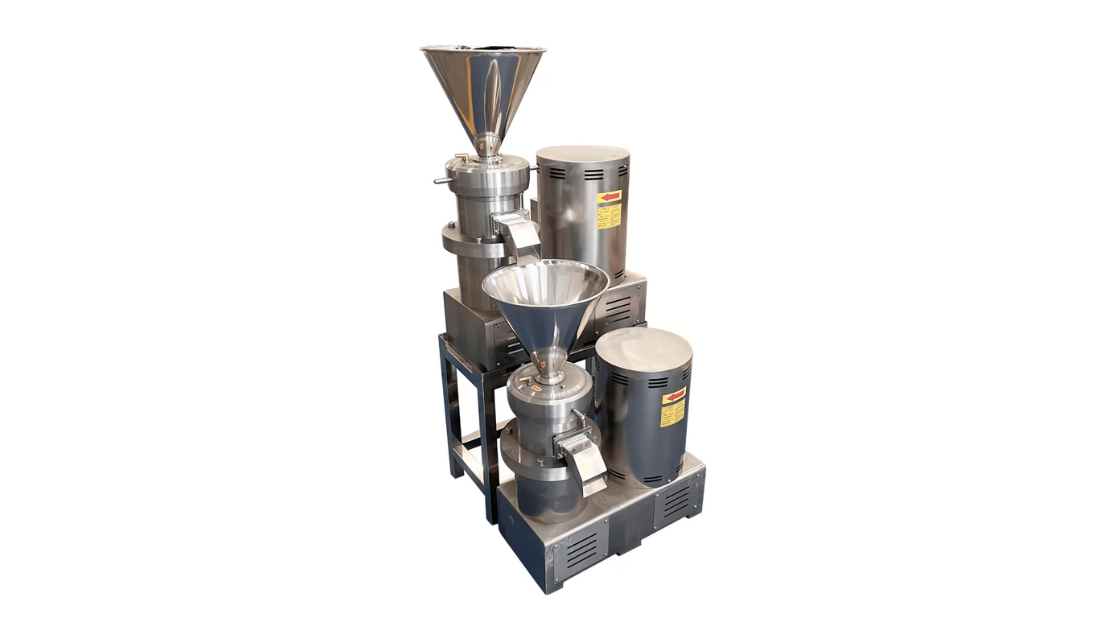Table of Contents

Introduction
Colloid mill is a versatile machine that is widely used in the food, pharmaceutical, chemical, and cosmetic industry. The machine is primarily designed to reduce the size of particles suspended in a fluid, making them suitable for use in formulations, suspensions, emulsions, and other fluid applications. In this article, we will explore the different aspects of the colloid mill, from its components to its working principle and applications.
What is a Colloid Mill?
A colloid mill is a machine that is used to reduce the size of suspended particles in a liquid. The machine consists of a motor, a hopper, and a stator fitted with a rotor. The rotor rotates at high speed, creating a shearing force that breaks down the particles into smaller sizes. The resulting product is a homogeneous mixture that can be easily dispersed or emulsified. Colloid mills are available in various sizes, ranging from small benchtop models to large-scale industrial units.
How does a Colloid Mill Work?
The colloid mill works by feeding the liquid suspension into the hopper, where it is introduced to the rotor and stator. The rotor spins at high speed, creating a shearing force that breaks down the particles into smaller sizes. The resulting mixture is discharged through the bottom of the mill and collected in a container. The machine can be adjusted to produce particles of different sizes, depending on the specific application requirements.
Components of a Colloid Mill
A colloid mill is made up of several components, including a motor, a hopper, a stator, and a rotor. The motor is used to drive the rotor, which is fitted with a set of blades that rotate at high speed. The hopper is used to feed the liquid suspension into the machine, while the stator and rotor work together to create a shearing force that reduces the size of the particles.
Applications of Colloid Mills
Colloid mills have a wide range of applications in various industries. In the food industry, they are used to produce peanut butter, mayonnaise, salad dressings, and other food products. In the pharmaceutical industry, they are used to produce creams, ointments, and other topical products. In the chemical industry, they are used to produce adhesives, lubricants, and other chemical products. In the cosmetic industry, they are used to produce lotions, creams, and other cosmetic products.
Advantages of Colloid Mills
There are several advantages to using colloid mills. First, they are highly efficient, reducing the size of particles within seconds. Second, they produce a homogeneous mixture that is easy to disperse or emulsify. Third, they can be used to produce particles of different sizes, depending on the specific application requirements. Fourth, they are easy to clean and maintain, making them ideal for use in a variety of industries.
Disadvantages of Colloid Mills
While colloid mills have many advantages, there are also some disadvantages to using them. First, they can be quite expensive, especially for large-scale industrial units. Second, they require a significant amount of power to operate, which can increase operating costs. Third, they require regular maintenance to ensure optimal performance. Fourth, they may not be suitable for all applications, as some products may be unsuitable for processing in a colloid mill.
Cleaning and Maintenance of Colloid Mills
Proper cleaning and maintenance of colloid mills is important to ensure optimal performance and longevity of the machine. The machine should be cleaned regularly to prevent the buildup of dirt, debris, and other contaminants. The rotor and stator should also be inspected and replaced if necessary. Lubrication is also important to ensure smooth operation of the machine. Regular maintenance can help to prevent breakdowns and prolong the lifespan of the machine.
Conclusion
Colloid mills are an important machine in various industries, providing a highly efficient and effective way to process suspended particles in a fluid. Understanding the different aspects of the colloid mill, from its components to its working principle and applications, can help to ensure optimal performance and longevity of the machine.
